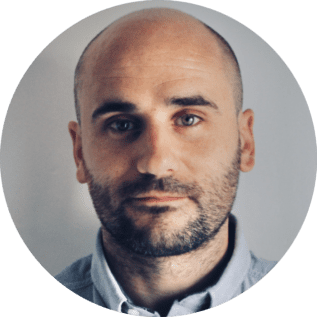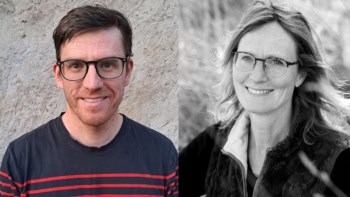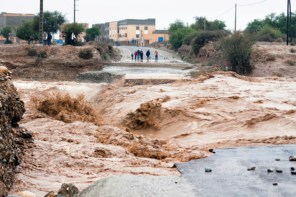
As the COP26 climate summit gets underway in Glasgow, the stakes could not be higher. If we want to limit the average global temperature rise to 2 °C above pre-industrial levels, then ambitions need to be raised.
The promise from many nations is to reach net-zero greenhouse-gas emissions by 2050 (or earlier) and interim targets are essential. But the United Nations has just said that the latest commitments of the 192 parties of the 2015 Paris agreement will equate to a 16% rise in global greenhouse-gas emissions in 2030 compared to 2010. That trend may lead to a warming of about 2.7 °C by the end of the century.
Many negotiations in Glasgow will involve climate financing, although a carbon market in which greenhouse-gas emitters pay for the true cost of pollution still seems a distant dream. Wealthy nations have not even delivered a $100bn annual fund to help developing nations with climate mitigation and adaptation, which had been promised for 2020 onwards.
While most climate scientists are not directly involved in high-level negotiations, their work is essential to the process. Thousands of studies fed into the recent sixth assessment report of the Intergovernmental Panel on Climate Change – and their research provides the physical-science basis upon which climate projections and policies are made.
Ahead of COP26, I contacted eight climate researchers to find out their hopes for the event.
Daniel Kammen, energy researcher, University of California, Berkeley, US

“As great as the COPs have been in terms of getting a big picture statement on the table, only two countries have been formally recognized as being on target. It’s actually two African countries, Morocco and the Gambia, that are making the progress needed for a decarbonized system. So we need to deliver on all of the wonderful words written down and deploy the technologies that we have. Then we absolutely have to end the massive subsidies for fossil fuels that are like a tonne weight sitting on the scale in favour of fossil fuels.”
Michelle Bell, environmental health researcher, Yale University, US

“We should focus on solutions that can provide co-benefits, such as policy measures that cut greenhouse-gas emissions while also improving air quality. I would also like to see a greater scientific understanding among the general public and policy makers about the true scientific consensus that exists. Just because we don’t know everything doesn’t mean we know nothing. I have had policy makers say to me ‘well, you didn’t prove it’. But their definition of proof is impossible.”
Eunice Lo, climate change and public health researcher, University of Bristol, UK

“I would like to see increased national and international action both in terms of mitigation and adaptation. Reaching net zero as fast as we can is essential to reducing heat-health risks. For the UK, for example, we see overheating in homes in summer because we are not adapted to the heat, even though we tend to get a period of relatively high temperatures almost every summer now. Limiting future warming and adapting to it are extremely important in protecting health.”
Steven Sherwood, atmospheric physicist, University of New South Wales (UNSW), Australia

“There’s a lot of words, but they need to be backed up by policy actions. Here in Australia our government has begun paying lip service to climate change but they’re not really willing to back any actions that would solve the problem. What I would hope to see is evidence that the countries around the world will not only say we’re going to get to net zero by 2050 but are actually willing to talk about policy measures that are tried and true and that we know make a difference.”
Katrin Meissner, director of the USNW’s Climate Change Research Centre, Australia

“I am optimistic given that the US is now showing strong leadership in addressing climate change. I think that this will create enough pressure on other countries to commit to meaningful emission reductions. The one realistic thing I hope national leaders will achieve at COP26 is a commitment to much more ambitious nationally determined contributions that, combined, will be in line with the Paris Agreement.”
Arpad Horvath, environmental engineer, University of California, Berkeley, US

“For infrastructure the one thing that will guarantee the future to be more sustainable is electrification. It’s an achievable goal because electricity generation is centralized, we only have a countable number of electric power plants. If we make them cleaner it will have an effect on everyone because it achieves other sustainability goals. A lot of people in the world do not have access to constant sources of energy, so electrification will give more people 24/7 access to energy, which is a very important for societal, economic and health goals.”
Martin Blunt, engineering physicist, Imperial College London, UK

“What is needed is a proper commitment to genuinely get to net zero and that has to be through government legislation. One example for carbon capture and storage (CCS) would be to not allow the generation of electricity that is unabated use of fossil fuels, or to guarantee a price of electricity if it is carbon neutral. That would then allow wind farms, solar photovoltaics energy storage, CCS, all to compete on a level playing field.”
Juan Alcalde Martín, geoscientist, Geo3bcn, Spain

“I’d like to see concrete numbers and specific details on how we are going to do the decarbonization. We have the commitment, now we need the strategy of how we are actually going to do it. CCS is just one piece of the jigsaw. But I’d like to know exactly when things will happen because we have been chatting around this now for at least 20 years. In my view, in Spain we’ve had some initiatives here and there, but at the moment there’s no action.”
These eight researchers appear in a two-part climate special I am presenting for the Physics World Weekly podcast. Part one looks at the health risks of extreme heat plus the biggest challenges in climate modelling. Part two, due out on 4 November, examines climate solutions such as renewables, batteries and carbon capture and storage.

Getting physical with the climate crisis
You can also learn about the latest climate science by signing up to Environmental Research 2021, a free to attend virtual event 15–19 November hosted by IOP Publishing. One of the first scientific conferences after COP26, it will cover climate science, energy, infrastructure and sustainability, environmental and global health, and ecology and biodiversity.



